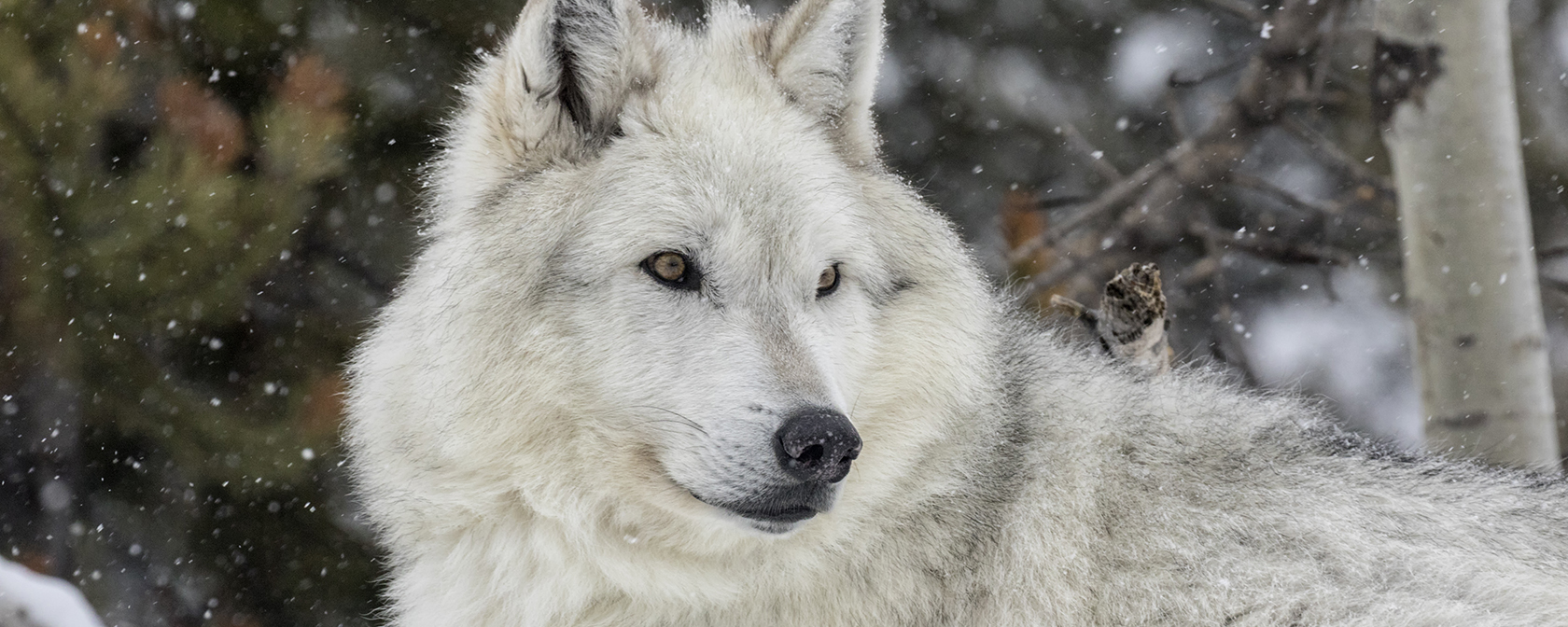By Sara Amundson and Kitty Block
We recently celebrated progress toward protecting wolves, bears, coyotes, cougars, foxes, bobcats and other native carnivores living on the vast U.S. National Wildlife Refuge System, when the U.S. Fish and Wildlife Service advanced a rule that would protect them from lethal and flawed “predator control” programs. Until the rule is finalized, however, their lives still hang in the balance, waiting for a decision that could mean the difference between life and death.
Such is the power that public policy has over the lives of animals. And it’s just one decision that we’re urging the Biden administration to make before election season stalls critical activity to finalize protections for so many species.
As President Biden’s State of the Union address on March 7 approaches, we want to point out unseized opportunities that could better protect dozens of species—including dogs, horses, dolphins, whales, grizzly bears, wolves, elephants, hippos—and their habitats, making the U.S. and its policies better for animals in 2024.
The following federal rules have been under consideration for some time, and animals can’t afford to wait much longer for:
- A Horse Protection Act rule to protect Tennessee walking horses and related breeds from soring
- Enhanced protections for African elephants under the Endangered Species Act through restrictions on importing hunting trophies and live elephants
- A ban on cruel predator “control” programs on native carnivores in National Wildlife Refuges, as mentioned above
- A rule to establish a nonessential experimental population of grizzly bears within the North Cascades Ecosystem
- A rule to reinstate essential Endangered Species Act regulations, impacting factors like establishing critical habitat for species
- A prohibition of cruel methods of trophy hunting and trapping on Alaska’s national preserves
- A rule to establish mandatory time-area closures for Hawaiian spinner dolphin habitats at five sites to allow dolphins time to rest without disturbance from tourism
- A rule to amend the Centers for Disease Control’s regulations concerning the importation of dogs into the U.S., which should be finalized to allow imports in a reasonable manner.
Some additional rules on the regulatory calendar we’d like to see advanced and finalized this year include:
- A rule that issues protections for hippos under the Endangered Species Act
- Implementation of the Shark Fin Sales Elimination Act
- A regulation under the Animal Welfare Act to strengthen standards for some animals in regard to public handling, training of personnel and environmental enrichment.
If approved, these measures would build upon the substantial pro-animal rulemaking actions the executive branch has taken so far, which have already had a positive impact.
We were pleased by the finalization of rules that require research facilities, puppy mills, roadside zoos and other facilities regulated by the USDA to prepare and maintain animal-focused emergency plans. We also supported the “organic livestock and poultry standards rule” that aligns animal welfare standards on organic farms with consumer expectations and improves life for tens of millions of farm animals every year. A rule establishing guidelines for handling, care, treatment and transportation of captive birds, as well as the treatment of wild-caught birds in regulated research facilities, was another win for animals.
We’ve also seen gains for animals within other agencies, including the U.S. Fish and Wildlife Service (on the reintroduction of gray wolves in Colorado) and the National Oceanic and Atmospheric Administration (to keep swimmers at least 50 yards away from Hawaiian spinner dolphins).
We speak from experience when we say that it takes a lot of work to get pro-animal rules across the finish line in Washington, D.C. But there is no question of the worth of this effort, as countless animals stand to benefit from these measures now and in the future.
Kitty Block is CEO of the Humane Society of the United States.




